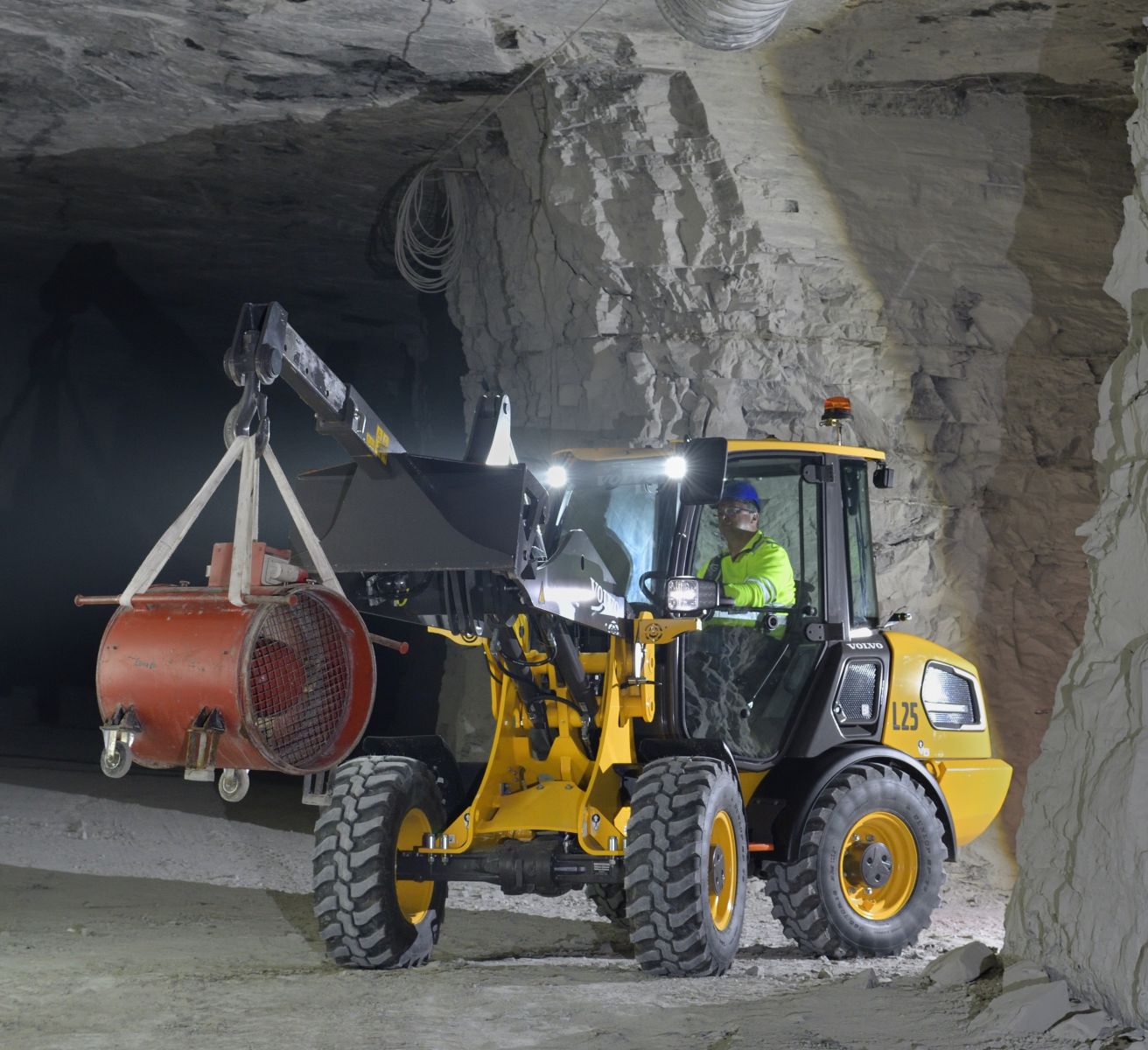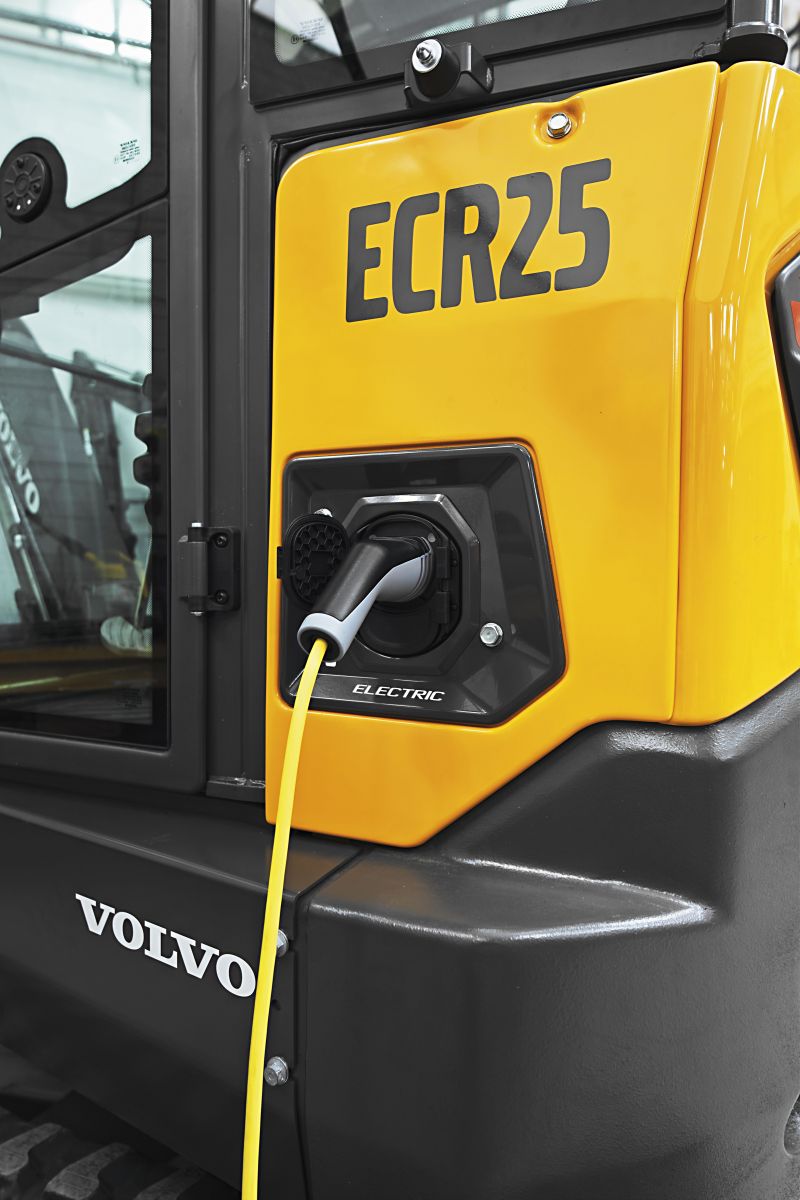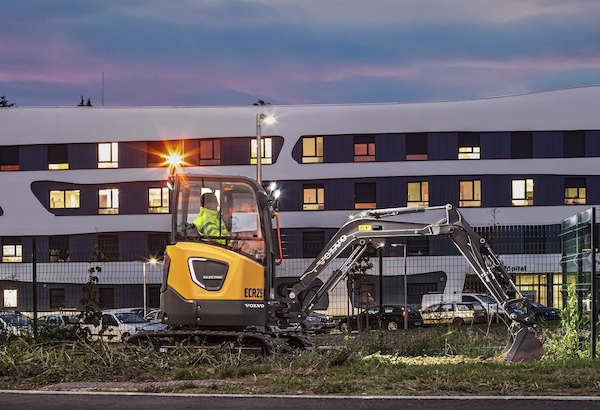Transitioning to Electric Equipment
With electric construction equipment now hitting the market, many people have questions. Which machines can be electric? Do electric machines have the same power as diesel? What kind of charging and runtime are we talking about here?
 What machines can even be electric?
What machines can even be electric?
While some machines, like aerial lifts and forklifts, have been electrified for years, electric earthmoving equipment, like excavators and wheel loaders, are just now becoming commercially available. So far, they’re mostly compact models because of current battery capabilities.
As advances continue in research, development, and charging infrastructure, battery power and battery life will improve to allow for the electrification of bigger machines (such as excavators closer to the 20-ton range). Electrification is under the spotlight now, so we expect great advancements in the not-so-distant future.
What is required to charge an electric compact machine?
The more power you can put in, the faster it will charge — kind of like filling your car with a fuel pump versus a gas can.
For optimal charging time for a compact excavator or wheel loader, it’s recommended to have a 240-volt, 32-amp Level 2, AC setup that utilizes an SAE J1772 charging adapter or J plug. That may sound intimidating, but this is the same setup recommended for electric cars and most household appliances. You can use a regular 120-volt outlet, but it will take longer.
As an example, an electric compact wheel loader charging on a 240-volt, Level 2, AC setup should be done in about six hours, empty to full. A common household outlet would do the job in 24 hours.
There are also options like off-board fast chargers and solar-powered chargers that will gain popularity in the coming years. What I would not suggest is charging with a gas-powered generator, because that defeats the main purpose of electric equipment: to be more environmentally friendly.
How long will it hold a charge? Will that affect my workday?
It depends. A compact wheel loader or excavator can be used in so many ways. Different applications can affect how long the batteries last. For most models out there today, you can expect four to six hours of actual work. It’s important to remember that, while a crew may work an eight- or 10-hour day, their equipment rarely is being used the entire time.
I recommend crews charge when they have a pause in their workday (e.g., over lunch). It’s also best practice to charge from mid-level to full, as opposed to draining the battery completely before recharging.
 Do operators need to remember to turn an electric machine off throughout the day to save battery?
Do operators need to remember to turn an electric machine off throughout the day to save battery?
Not if your electric machine comes with an auto-shutdown feature (which many do). An auto-shutdown feature turns the motor off almost immediately if an operator stops running the machine. And, to get working again, the electric motor turns on instantly and provides immediate power.
With diesel equipment, operating time is defined by engine runtime, and a lot of those hours are counted while the machine is idle; 10,000 lifetime hours on a diesel machine might equal only 6,000 hours on a comparable electric machine.
Does an electric machine have as much power as a diesel one?
Some people jump to the conclusion that an electric machine will be inferior to a diesel machine in some way — usually power. You’ll want to compare the specs of the machines you’re looking at, but there are companies with electric models that meet and, in some instances, exceed their diesel counterparts.
One of the most popular differences is that an electric motor provides instant torque as soon as the operator starts running it. There’s no feeling of a slight delay, which can happen with diesel machines.
How is maintenance different on an electric machine?
Maintenance is much simpler because there’s no engine. For one thing, diesel exhaust fluid or other filters are not needed. Essentially, you just need grease and hydraulic oil.
Overall, the lifetime of battery-electric components should be equal to or better than that of the diesel engine on a conventional machine. A conservative estimate would be that owners will see a 35 percent savings in maintenance cost and time over the life of a quality electric machine.
Why should I use an electric machine instead of diesel?
Think of all the new and different ways electric equipment can be used thanks to zero emissions and lower noise, such as indoor and nighttime applications. Also, using zero-emission machines complements the mission of those in the alternative energy industry, and helps meet public and private sector sustainability targets.

If you’re concerned about the cost of switching to electric, don’t forget to assess the total cost of ownership (TCO) and not just the purchase price. Electric machines offer fuel savings, less maintenance, and extended component life — and that’s on top of the additional work you may be able to win because of the differences in sustainability and noise levels.
Lars Arnold is Electromobility Product Manager at Volvo Construction Equipment. He has an engineering background, and has been with Volvo Construction Equipment since 2002. He has worked in multiple positions in various countries, and is now based in Shippensburg, Pennsylvania, as the electromobility product manager in charge of product specifications and required features for the North American market.
Volvo Construction Equipment | www.volvoce.com
Author: Lars Arnold
Volume: 2022 September/October











